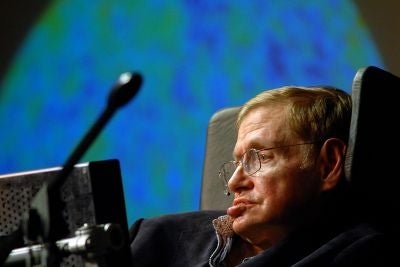In a synthesis of science, art and culture, the third annual World Science Festival takes place at 40 events in 20 locations around New York City, June 2-6.
A gala opening at Lincoln Center will honor Stephen Hawking, Cambridge University cosmologist, with Yo-Yo Ma performing and Alan Alda hosting. Also, the world premiere of Icarus at the Edge of Time, a new composition by Philip Glass based on a story by physicist Brian Greene, the festival co-founder, will be performed.
The re-envisioned Icarus story finds the mythical character trapped on a spaceship in the middle of a multigenerational trip to another star. Visuals are by Al and Al, British artists/filmmakers Al Holmes and Al Taylor with narration by actor John Lithgow. It will be performed in July in London for the 350th anniversary of the Royal Society at the Festival of Science + Arts.
The New York festival also unveils a full-scale model of NASA's 80-foot James Webb Space Telescope, to be launched in 2014 and on display in lower Manhattan's Battery Park in place all week, ending in a star-gazing party on Friday.
A series of intriguing panels include talks on the Science of Star Trek, Inside the Large Hadron Collider, animal intelligence, art appreciation, faith, and hyperspace.
Ocean exploration will be discussed with Fabien Cousteau, grandson of Jacques Cousteau, and marine biologist Sylvia Earle, and Oliver Sacks, the neurologist and author, joins painter Chuck Close, to share about their inability to recognize faces.
There will be art exhibits, such as "BioArt," dance performances, and acoustic experiences on the formation of black holes and magnetic waves. The festival closes with a science street fair in Greenwich Village.
Several programs will be streamed online at www.livestream.com including the 2010 Kavli Awards. The biennial international awards recognize advances in astrophysics, nanoscience and neuroscience, with cash prizes of $1 million in each field, announced via satellite from the Norwegian Academy of Science and Letters, in Oslo.
http://www.worldsciencefestival.com
RC
Subscribe to Independent Premium to bookmark this article
Want to bookmark your favourite articles and stories to read or reference later? Start your Independent Premium subscription today.


Join our commenting forum
Join thought-provoking conversations, follow other Independent readers and see their replies